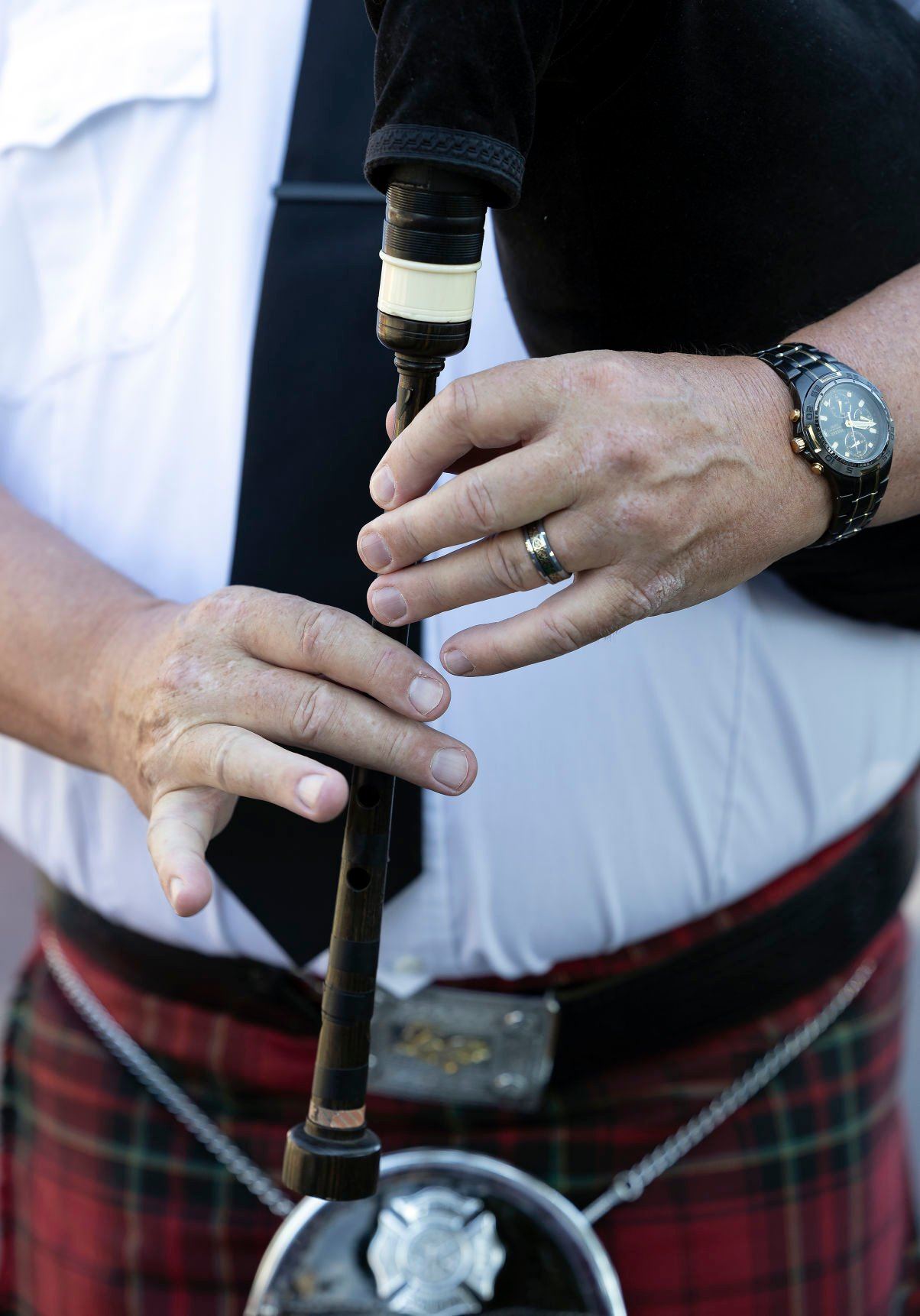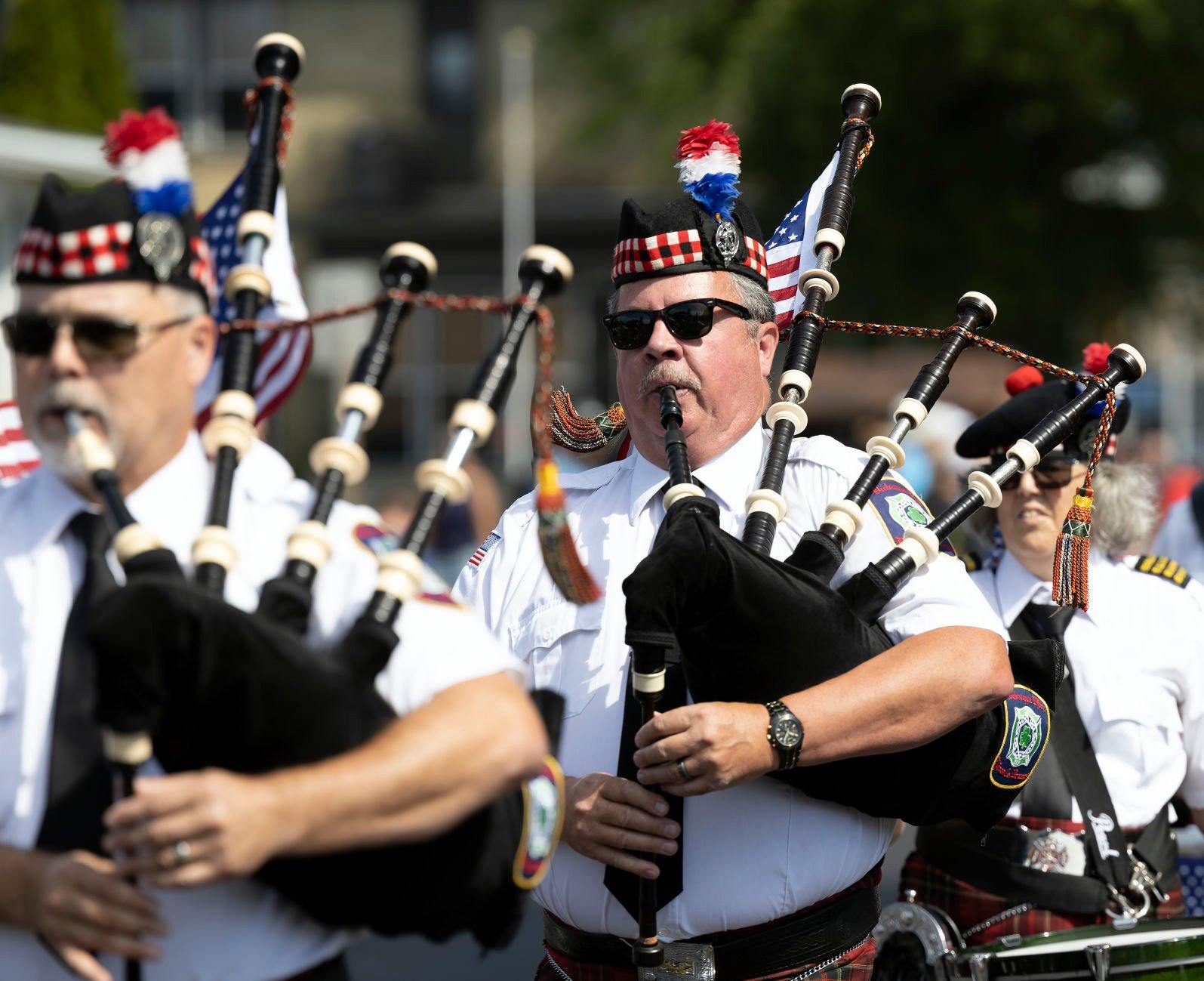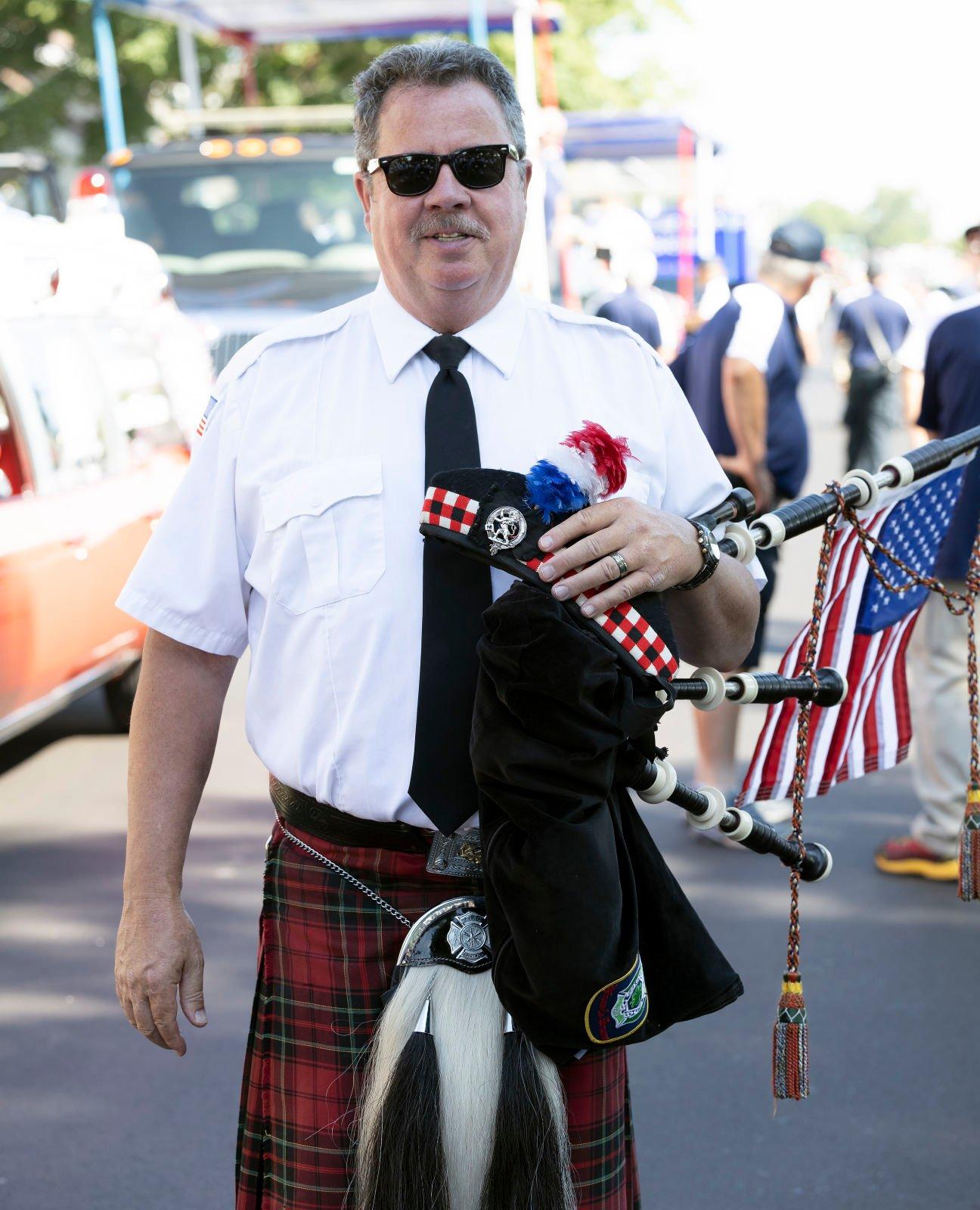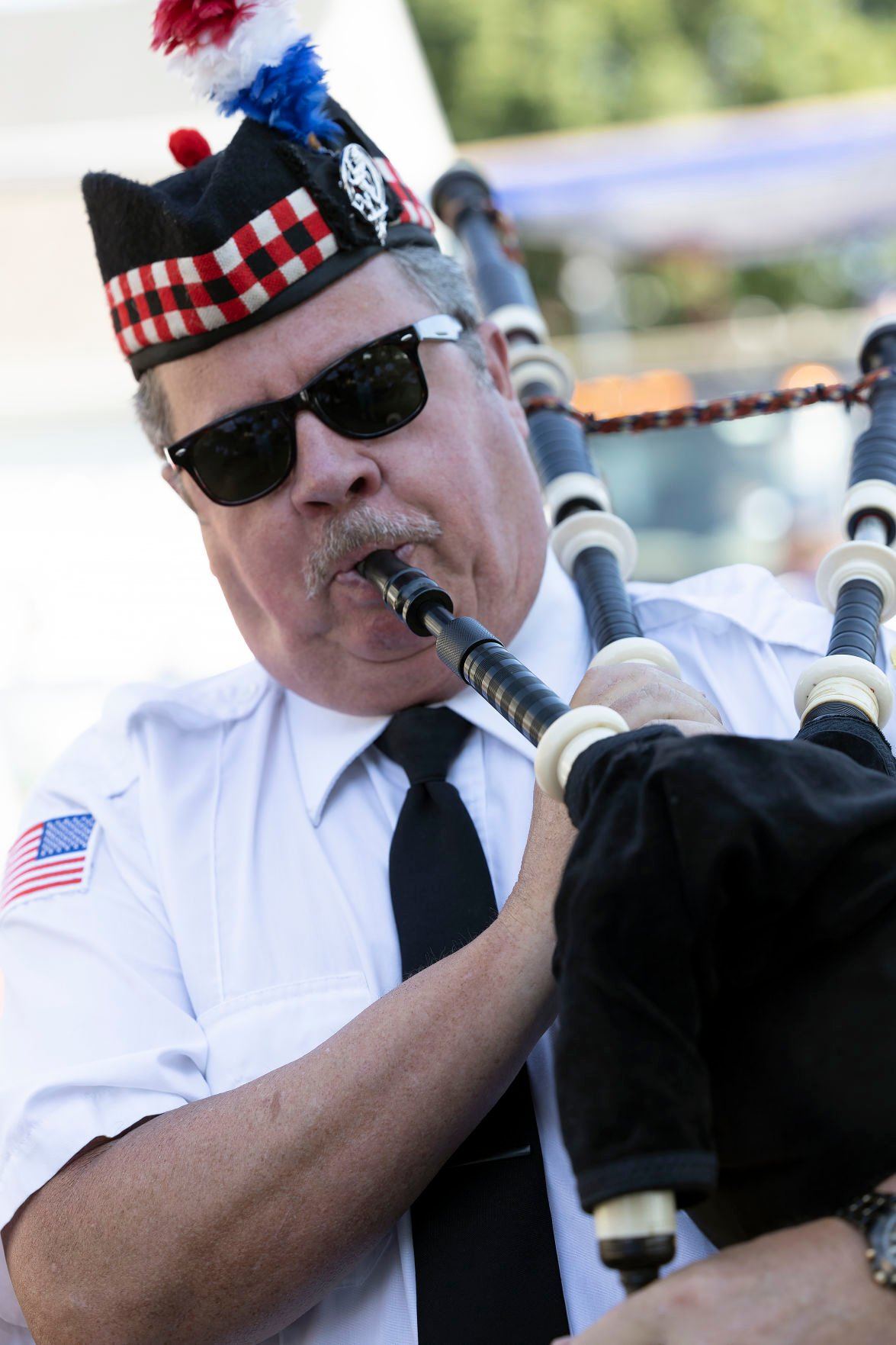Location: Galena, Ill.
Online: facebook.com/spiveybagpiping
Contact: grantpark1@hotmail.com
GALENA, Ill. — When Bill Spivey was learning to play the bagpipe 20 years ago, his instructor told him the instrument would take him places.
Spivey didn’t believe him at first, but now, as a professional bagpipe player, he believes his instructor was on to something.
“It really has opened a lot of doors for me,” he said. “I’ve played all over the place and been given plenty of unique opportunities.”
Spivey is the man behind Spivey Bagpiping, a business based in Galena.
Since 2010, Spivey has been hired to play the bagpipe for funerals, weddings, parties, festivals and special events.
For all of those performances, he makes sure to wear a kilt.
“I believe that you should respect the instrument,” he said. “That is the proper way to play bagpipes.”
Spivey first began taking bagpiping lessons in Chicago in 2002 under the instruction of a player from Dundee, Scotland. He was 45 years old at the time.
“I told him I only wanted to learn three tunes, so I could go into a bar, play a little and get free drinks,” Spivey said. “He told me, ‘You don’t just take up the bagpipes. At some point, you become a bagpiper.’”
Spivey said he was drawn to the idiosyncratic nature of the instrument, the outfits players wore and the cultural impact bagpipes have had on people of Scottish and Irish descent.
What struck him most was that despite how well known bagpipes are, very few people played them.
“It seems to me to be a mysterious instrument,” Spivey said. “You really don’t see it played too often by people.”
Despite there being few people who know how to play the bagpipe, Spivey said there is plenty of demand in the area to hear them played. He often is booked to play multiple events per week, sometimes driving to events as far as 100 miles away.
“People always come up and want to know how it works,” Spivey said. “There is a lot of curiosity and interest in bagpipes when you are actually out there playing them.”
Spivey attributed much of his success to the many people living in the tri-state area who claim Irish heritage.
Patrick Leonard, owner and operator of Leonard Funeral Home in Dubuque, said he often receives requests for bagpipes to be played at a funeral from people who want to feel closer to Irish ancestry.
In those cases, Spivey is his go-to contact.
“It’s something you see a lot with people with Irish heritage,” Leonard said. “At the end of the funeral, he will keep playing and start walking away from the family, and you can hear the music fade away. It’s really special how he does it.”
Spivey said proximity to people with Irish heritage has been essential to the success of his business. When he spent a year living in St. Louis, he hardly had any bookings, which he attributed to a propensity in that area to celebrate German heritage.
“They didn’t want bagpipers,” Spivey said. “They had accordion players there.”
Along with the funerals of those with Irish blood, bagpipes also are particularly popular for the funerals of former police officers, firefighters and military veterans.
Tom Walsh, commander of Dubuque American Legion Post 6, said military-style funerals long have incorporated bagpipes in their ceremonies. That tradition continues on today.
“It was definitely something carried over by the Irish and Scottish immigrants,” Walsh said. “You will still see people ask for bagpipes at funeral services.”
Spivey said his bagpiping business largely has relied on word-of-mouth references, but his services have gained popularity through the years.
Along with playing at events, Spivey also offers bagpiping lessons for people of all ages.
Spivey said he doesn’t have ambitions to expand his bagpiping business. For now, he is satisfied there are people out there who want to hear him play.
“This was my first musical instrument I ever learned,” he said. “I know it was a strange pick, but I’m glad it did it.”





